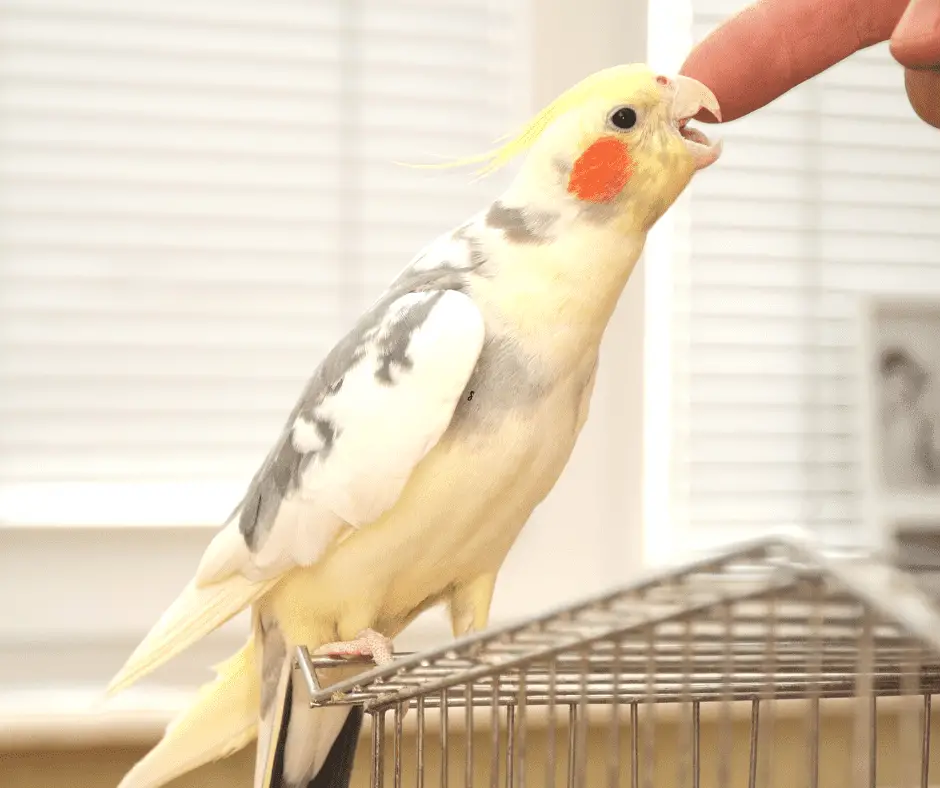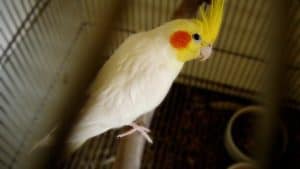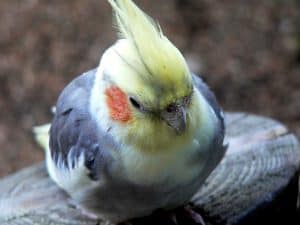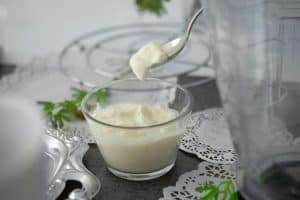Why does my cockatiel nibble me? It’s a question that many cockatiel owners ask. Cockatiels are known for their playful and affectionate nature, and they often show their love by nibbling on their owner’s fingers.
Believe it or not, there is actually a reason why cockatiels do this! In this blog post, we will discuss eight fun facts about why cockatiels nibble their owners. We will also cover some of the other common behaviors that these birds exhibit. So if you’re curious about why your cockatiel behaves in certain ways, keep reading!
What are cockatiels?
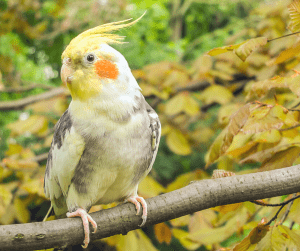
Cockatiels are a type of parrot that is native to Australia. They are one of the most popular pet birds in the world, and they are known for their friendly and affectionate nature.
Cockatiels come in a variety of colors, but the most common coloration is gray with yellow streaks on the wings. These birds are relatively small, and they have long tails.
Cockatiels are very social creatures, and they love to interact with their owners. They are also known for being very affectionate birds, and they often show their love by nibbling on their owner’s fingers.
Why does my cockatiel nibble me?
There are actually a few reasons why pet bird cockatiel nibbles its owners. Let’s take a look at some of the most common reasons:
Fact #1: Exploring the world
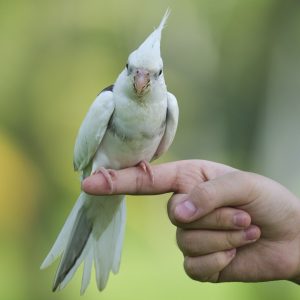
One reason why your cockatiel nibbles you is that they are simply exploring their environment. Like most parrots, cockatiels use their beaks as a way to investigate new objects, textures, and tastes. This behavior can be compared to human babies who tend to put anything and everything in their mouths as a means of learning about their surroundings.
When your new cockatiel nibbles on your fingers, clothes, or other items, they are gathering information about the world around them. This is a natural and healthy behavior that helps your pet bird understand its environment.
Fact #2: Grooming behavior
Another reason for cockatiel nibbling is grooming. Preening and grooming are essential behaviors for maintaining healthy feathers and skin. Cockatiels spend a significant portion of their day preening themselves, removing dirt, debris, and loose feathers.
When your cockatiel nibbles you, it might be an extension of this grooming behavior. This is particularly common in bonded pairs of birds, where they will groom each other as a sign of affection and trust. If your pet cockatiel sees you as part of their flock, they may try to groom you in the same way they would another cockatiel. This gentle nibbling is a sign that your bird is comfortable with you and sees you as a friend.
Fact #3: Communication
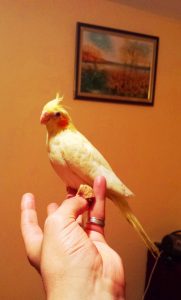
Cockatiels have a variety of ways to communicate with each other and with their human caretakers. While they can vocalize, they also rely on body language and other nonverbal cues. Nibbling can be a form of communication for your pet bird, indicating that they might be hungry or craving attention.
For example, if your cockatiel nibbles your fingers when you are near their food dish, they may be telling you that it’s time for a meal. Or, if they nibble on your ear or face when you are petting them, they might be letting you know that they enjoy the attention and want more of it. Paying attention to the context of the nibbling can help you understand what your bird is trying to tell you.
Fact #4: Teething
Young cockatiels, like other parrots, go through a teething process as they grow. As their beaks develop and strengthen, they may experience discomfort and have an increased desire to chew and nibble on objects. This can include your fingers, clothing, or other items within reach.
During this time, it’s essential to provide your pet bird with appropriate toys and items to chew on, which can help alleviate any discomfort they might be feeling. Once your cockatiel has completed the teething process, their nibbling may decrease.
Fact #5: Stress relief
Just like humans, birds can experience stress and may engage in certain behaviors to help relieve it. Nibbling can be a stress-relief behavior for some cockatiels. When your cockatiel is anxious or upset, they may turn to nibbling as a way to self-soothe.
If you notice an increase in your cockatiel’s nibbling behavior, it’s essential to identify and address any potential sources of stress. This could include changes in their environment, a lack of mental stimulation, or health issues. Providing a calm, stable environment with plenty of opportunities for play and exploration can help reduce stress and minimize nibbling behavior.
- Challenges Your Parrot Mentally & Physically --- Toys are a necessity for parrots. They provide essential physical activity so that our intelligent feathered pets stay healthy. Bird Chewing Toy by SunGrow provides opportunities for parrots in the cage which they undertake when living in their native habitat. There are several multi-colored blocks in this single toy to make your bird active. These blocks are arranged in multiple layers to climb and explore.
- Entertaining Toy For Your Birds --- A parrot with nothing to do is a prime candidate for behavioral problems. Some parrots tend to be more disruptive during certain times of the year, usually during their breeding period. SunGrows bird chewing and preening toy is a perfect companion to keep your parrots busy, less disruptive and have more fun hours which keep them active mentally.
- Edible Chew Toy --- It is important for the avian species that we keep something for them to chew on. In their native habitat, they engage in chiseling holes and tearing up branches. This is something innate to them. The wooden blocks chew toy by SunGrow is made from wood and cotton rope. So when they nudge on to their toy, it would keep them content. So if you dont spot your green cheek outside playing, just hover a little inside. They might be hiding amongst the blocks and savoring them.
- Right Size For Your Bird --- The Bird Chewing Toy by SunGrow comes with a standard size of 40cm (15.7) x 10cm (3.9) and fits well in your beloved feathered pets cage. The included metal buckle holds this toy in place. Its crunch potential is ideal for small parrots and medium-sized, conure-sized birds. It is suggested for macaws, African greys, Cockatiels, Cockatoos, Budgies, Lovebirds, pigeons, and a variety of Amazon parrots as well.
Fact #6: Territory marking
Territory marking is a natural behavior in many bird species, including cockatiels. They may nibble on objects or surfaces to leave their scent and mark their territory. This can also extend to their human caretakers. When your cockatiel nibbles you, they may be trying to establish their bond with you and reinforce their claim to you as part of their territory.
While this behavior can be endearing, it’s essential to monitor it closely. Excessive territorial behavior can lead to aggression and other undesirable behaviors. Ensuring that your cockatiel has ample space to explore and establish their territory can help prevent potential problems.
Fact #7: Boredom
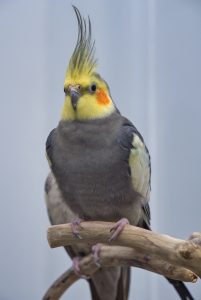
Cockatiels are intelligent, curious birds that require mental stimulation and engagement. When they are bored or lacking in mental stimulation, they may turn to nibbling as a way to occupy themselves. If your pet bird is nibbling excessively, it could be an indication that they need more engaging activities or toys to keep them entertained.
Providing a variety of toys, perches, and other items for your cockatiel to interact with can help alleviate boredom and reduce nibbling behavior. It’s also essential to spend time with your pet, engaging in play and social interaction to keep their minds active and healthy.
Fact #8: Mating behavior
During breeding season, male cockatiels may exhibit a range of mating-related behaviors, including increased nibbling. This behavior can be directed towards their human caretakers or other birds within their environment. In some cases, female birds may also engage in nibbling as a response to breeding hormones.
If you notice an increase in nibbling during breeding season, it’s essential to monitor your cockatiel’s behavior closely. Aggressive behavior or excessive nibbling can lead to injury or stress for both your pet and any other birds in your household. Providing a calm, stable environment and ensuring that your cockatiel has appropriate outlets for their energy can help minimize undesirable behavior during this time.
Are cockatiels affectionate?
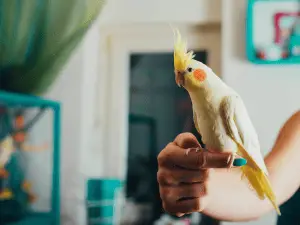
Yes, cockatiels are known to be affectionate pets. They often form strong bonds with their human caretakers and enjoy spending time with them. Cockatiels display their affection through various behaviors, such as cuddling, perching on their owner’s shoulder, gentle nibbling, and even imitating their owner’s voice. Each cockatiel has its own unique personality, and the level of affection may vary. However, with proper care, socialization, and attention, cockatiels can become loving and affectionate companions.
What are some other common cockatiel behaviors?
In addition to nibbling, there are a few other common behaviors that cockatiels exhibit. Let’s take a look at some of the most common ones:
- Preening: This is when cockatiel grooms themselves by using their beak to remove dirt and debris from their feathers. Preening is a way for cockatiels to keep their feathers clean and healthy.
- Biting: Cockatiel bites can range from gentle nips to full-on bites that draw blood. Cockatiels typically bite out of fear or aggression, but they may also bite if they are trying to get attention or if they are bored.
- Screaming: Cockatiels are known for their loud screams, and they may sometimes do this to get attention or to express their excitement. If your cockatiel is screaming excessively, it’s important to try to figure out why they are doing this so that you can address the issue.
- Hiding: Cockatiels may sometimes hide from their owners as a way to escape from stressful situations. If your cockatiel is frequently hiding, it’s important to try to figure out why they are doing this so that you can address the issue.
- Flying: Cockatiels are able to fly, and they may sometimes do this to escape from their cage or to get attention. If your cockatiel is frequently flying around, it’s important to make sure that their cage is secure so that they cannot escape.
So, what does it mean when a cockatiel nibbles you?
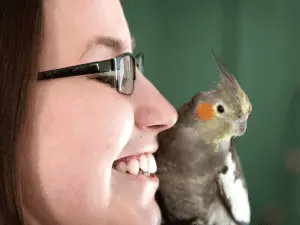
Understanding why your cockatiel nibbles you is an essential part of forming a strong bond with your pet bird. Whether they are exploring their environment, showing affection, or communicating their needs, nibbling is a natural and generally harmless behavior. By paying attention to the context of the nibbling and ensuring that your pet’s needs are met, you can maintain a healthy, happy relationship with your cockatiel.
We encourage you to share your experiences with cockatiel nibbling in the comments below! As cockatiel owners, we can all learn from each other and continue to grow in our understanding of these fascinating and affectionate birds.
Other suggested articles:
